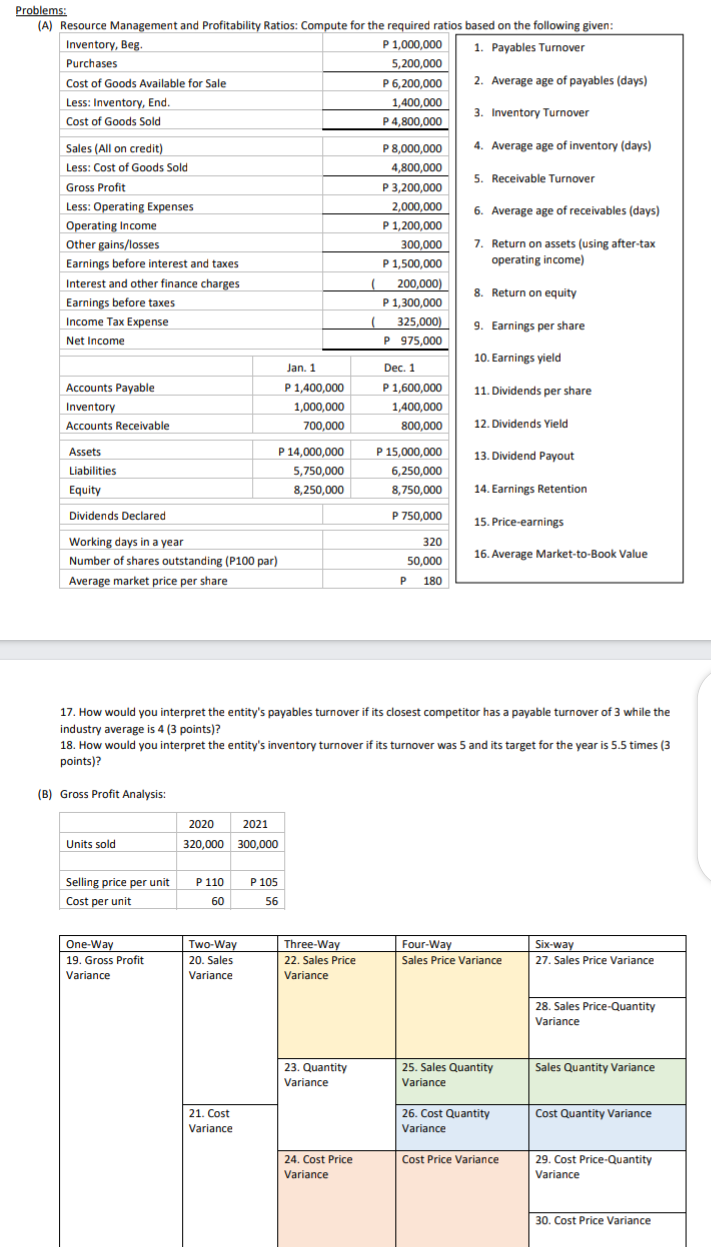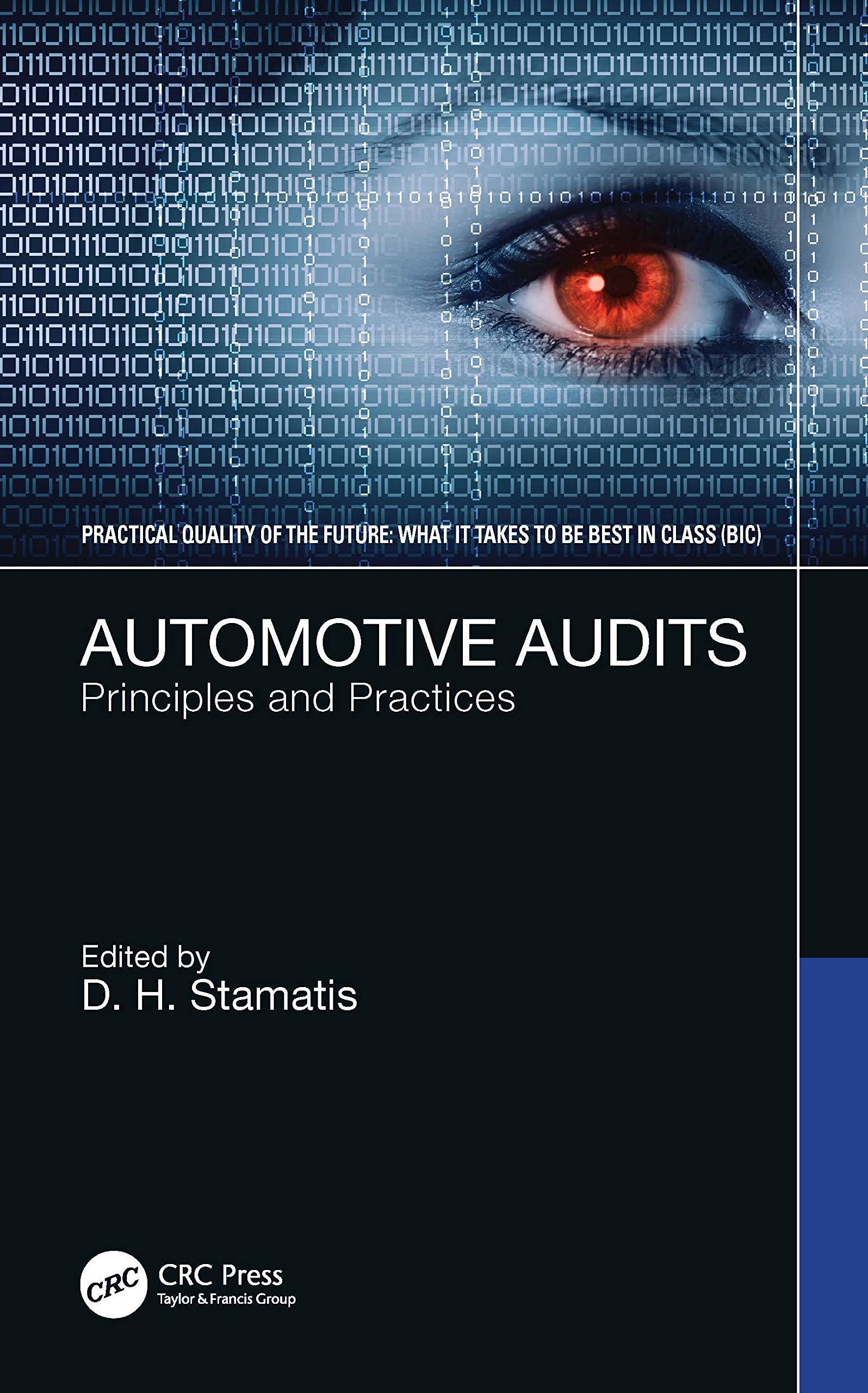Answered step by step
Verified Expert Solution
Question
1 Approved Answer
Problems: (A) Resource Management and Profitability Ratios: Compute for the required ratios based on the following given: Inventory, Beg P 1,000,000 1. Payables Turnover Purchases

Problems: (A) Resource Management and Profitability Ratios: Compute for the required ratios based on the following given: Inventory, Beg P 1,000,000 1. Payables Turnover Purchases 5,200,000 Cost of Goods Available for Sale P 6,200,000 2. Average age of payables (days) Less: Inventory, End. 1,400,000 3. Inventory Turnover Cost of Goods Sold P 4,800,000 Sales (All on credit) P P 8,000,000 4. Average age of inventory (days) Less: Cost of Goods Sold 4,800,000 5. Receivable Turnover Gross Profit P 3,200,000 Less: Operating Expenses 2,000,000 6. Average age of receivables (days) Operating Income P 1,200,000 Other gains/losses 300,000 7. Return on assets (using after-tax Earnings before interest and taxes P 1,500,000 operating income) Interest and other finance charges ( 200,000) 8. Return on equity Earnings before taxes P 1,300,000 Income Tax Expense ( 325,000) 9. Earnings per share Net Income P 975,000 P 10. Earnings yield Jan. 1 Dec. 1 Accounts Payable P 1,400,000 P 1,600,000 11. Dividends per share Inventory 1,000,000 1,400,000 Accounts Receivable 700,000 800,000 12. Dividends Yield Assets P 14,000,000 P 15,000,000 13. Dividend Payout Liabilities 5,750,000 6,250,000 Equity 8,250,000 8,750,000 14. Earnings Retention Dividends Declared P 750,000 15. Price-earnings Working days in a year 320 16. Average Market-to-Book Value 50,000 - Number of shares outstanding (P100 par) Average market price per share P 180 17. How would you interpret the entity's payables turnover if its closest competitor has a payable turnover of 3 while the industry average is 4 (3 points)? 18. How would you interpret the entity's inventory turnover if its turnover was 5 and its target for the year is 5.5 times (3 3 points)? (B) Gross Profit Analysis: : 2020 2021 320,000 300,000 Units sold Selling price per unit Cost per unit P 110 60 P 105 56 One-Way 19. Gross Profit Variance Two-Way 20. Sales Variance Three-Way 22. Sales Price Variance Four-Way Sales Price Variance Six-way 27. Sales Price Variance 28. Sales Price Quantity Variance 23. Quantity Variance 25. Sales Quantity Variance Sales Quantity Variance Cost Quantity Variance 21. Cost Variance 26. Cost Quantity Variance Cost Price Variance 24. Cost Price Variance 29. Cost Price-Quantity Variance 30. Cost Price Variance
Step by Step Solution
There are 3 Steps involved in it
Step: 1

Get Instant Access to Expert-Tailored Solutions
See step-by-step solutions with expert insights and AI powered tools for academic success
Step: 2

Step: 3

Ace Your Homework with AI
Get the answers you need in no time with our AI-driven, step-by-step assistance
Get Started


